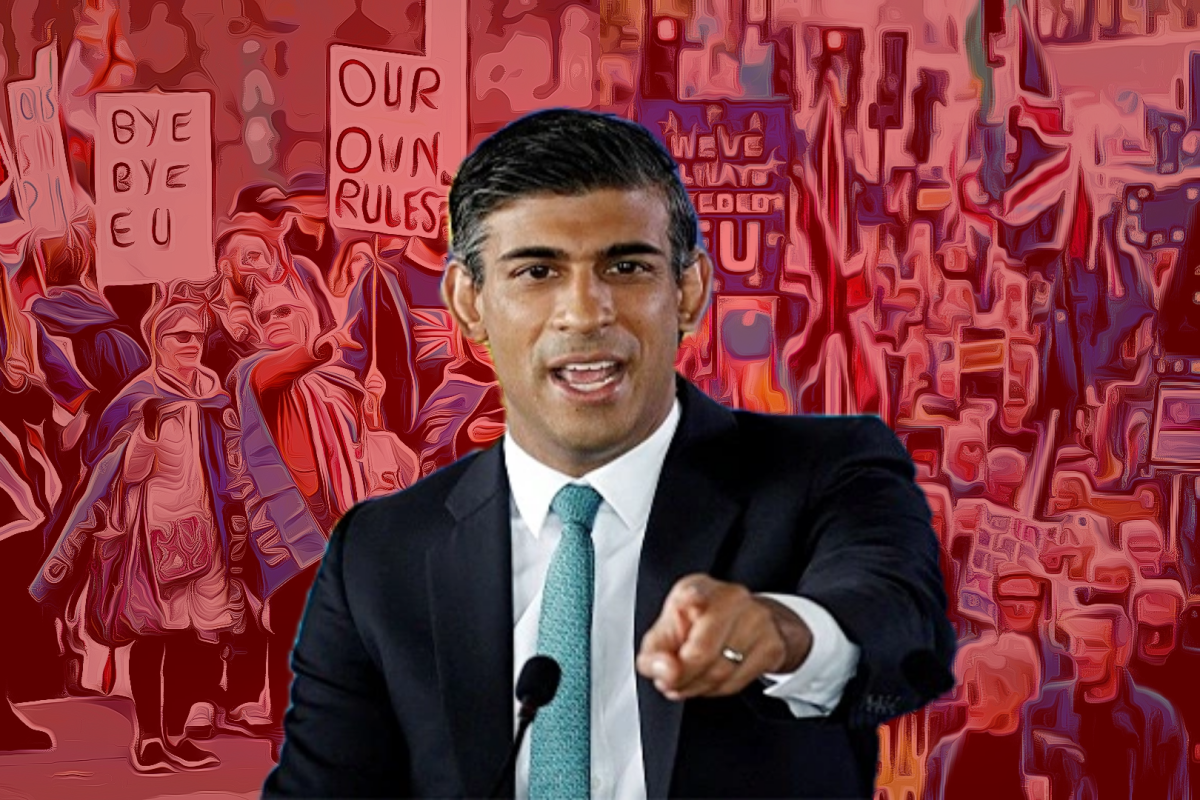Seven years have passed since the historic Brexit referendum, and the dynamics between the United Kingdom and the European Union continue to evolve. After the departure from the European Union, political and economic developments in the United Kingdom have not progressed in the way that the government predicted. Recent surveys and data demonstrate contradicting results from what the British government had anticipated for Brexit. People in the United Kingdom have different views on departure from the EU than they used to have.
According to the latest Guardian YouGov Brexit tracker survey, a notable change has occurred in the sentiments of the British public. Excluding those who would not vote or were undecided, a remarkable 58.2% of people in the UK would now vote to rejoin the EU. This figure is only slightly down from the peak of 60% recorded in February of the same year, marking the highest level of support for rejoining since comparable data began in 2012. This surge in pro-EU sentiment follows a post-referendum low of 47% in early 2021, signifying a gradual but consistent shift in public opinion.
According to John Springford from the Centre for European Reform, Brexit, often hailed as a success by its proponents, now reveals its costs. While the UK declared that it had “got Brexit done” and “taken back control,” the consequences are undeniable. However, convincing Brexiteers of these drawbacks can be challenging. In a recent LBC radio interview, Lord Michael Spencer, a prominent billionaire and former Tory party treasurer, was asked if there were benefits to leaving the EU. He responded with a resounding “Yes, many,” highlighting the ongoing debate surrounding the complex economic and political implications of the UK’s departure from the European Union.
Brexit’s impact on the scientific community has also been evident. According to Science, UK-based scientists have encountered difficulties in leading multi-country research consortia, an area in which they had historically excelled. Additionally, the uncertainty surrounding Brexit led to a decline in the overall number of UK applications for research funding. The UK government has sought a greater post-Brexit discount on its contributions, highlighting the need to support scientists in securing grant funding and maintaining their global research leadership.
Economically, Brexit has brought challenges that continue to ripple through the UK. High inflation has been a significant concern, exacerbated by disruptions in trade with the EU and the devaluation of the pound, making imports more expensive. According to CNN. Brexit was responsible for about one-third of UK food price inflation since 2019, adding nearly £7 billion to the nation’s grocery bill. Concerns about border checks on food imports from the EU, which supplies 28% of the food consumed in Britain, have raised fears of potential supply shortages.
The UK government has announced plans to extend deadlines for border checks on food imports, aiming to provide stakeholders with additional time to prepare for these new regulations. However, the wider economic impact of Brexit cannot be ignored. According to the New European,\ the Office for Budget Responsibility notes that the UK’s “trade intensity” (trade as a proportion of GDP) has fallen significantly compared to other advanced economies, signaling the challenges of post-Brexit trade dynamics. Brexit’s impact on immigration has also been pronounced. The end of free movement has led to a reduction in net immigration from the EU, a stark contrast to the pre-referendum era when immigration from the EU was over 200,000 annually.
Furthermore, The UK’s business investment landscape has also seen considerable change since the Brexit vote. While low levels of business investment existed before Brexit, the data suggests that Brexit has contributed to a particularly poor performance in this area since 2016, with investment potentially lagging by around 10% compared to what it might have been without Brexit.
While these events have occurred in Britain, many students and faculty members have experienced this dramatic change in their lives. Kevin Tkachuk, Master Teacher of the history and social sciences department, states the change in the United Kingdom has serious impacts on social and economic life. He opines that “even though I did not have the chance to observe and experience the flat-out alterations in the country, I know from my friends in the finance sector that have been affected by new policies that they were not used to.”
Moreover, he also said that “the ability to work and study anywhere in Europe without a visa was a great advantage” and that “my understanding is that it is largely still available, but now there is more paperwork and bureaucracy involved.”
Tkachuk mentions his concerns about the retrieved privileges of traveling and emphasizes how British people have had to deal with more bureaucracy recently.
Another faculty member, Vanessa Giannikas, instructor of science, described her concerns about Brexit.
“We were staggered by the referendum results,” Giannikas said. “We did not give any possibility of Brexit to happen.”.
She continued by saying that “politicians who favored Brexit pledged people for lower prices, increased wealth, and a more prosperous Britain by emphasizing how the EU was a burden on them. However, after the referendum, many policy changes on quotas and tariffs increased prices. In other words, we underwent exactly the opposite of the things which were that were pledged to us.”
Furthermore, Giannikas stood on the point of rectifying the political system in the UK. She remarks “Re-entrance to the EU will not solve the problems instantaneously, both negotiations with the EU council and producing logical policies country will both be beneficial in terms of solving the problems of the country.” Mrs. Giannikas concludes her statements by mentioning that necessity of international and domestic executions for the sake of Britain.
Giannikas ultimately remarks that “if I have to make a comparison between my life before and after Brexit, I can frankly say my life in the EU was much better due to lower prices, visa liberalization and high life expectancy.”

























